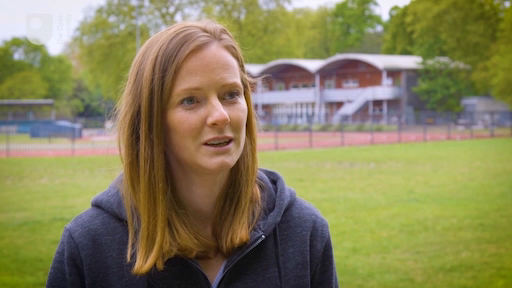2 Spotlight: sport injury
Unfortunately, sport injury is something that athletes commonly experience during their careers. Depending on its nature and severity a sport injury can lead to several difficult transitions such as temporary withdrawal from sport or in some cases premature retirement from sport. These can have a significant impact on the athlete as you will discover in the rest of this session.
Activity 2 Responses to sport injury
Watch the video below in which Olympic medallist (hockey) Helen Richardson-Walsh describes her experience of sport injury. Then reflect on any personal experiences you have had of sport injury (either as an athlete or as someone supporting an athlete) and think about the psychological impact the injury had.
Make a list of some of the common psychological reactions that you think an athlete might have in response to a sport injury.

Transcript: Video 2
Discussion
Everyone’s experience of sport injury is different, but common reactions to injury include:
- feelings of isolation
- fear
- anxiety
- hopelessness
- loss of identity
- anger
- depression
- grief
- loneliness
- stress
- anxiety
- low self-esteem.
You may well recognise some of these feelings from your own experiences of sport injury. These feelings are all largely negative emotions, but experiencing sport injury can sometimes lead to some positive consequences. For example, some athletes believe that the experience of injury makes them a better athlete by giving them a new perspective or allowing them to develop new skills while on the sidelines. These gains are often referred to as ‘sport injury related growth’ (Salim and Wadey, 2018).
Activity 2 demonstrates that adjusting to sport injury can be a difficult transition for people to cope with. Not only is sport injury difficult to deal with when it occurs and during injury rehabilitation, but once the injury has recovered, the return to sport can also represent a difficult period of transition. You will examine this in the next section.
